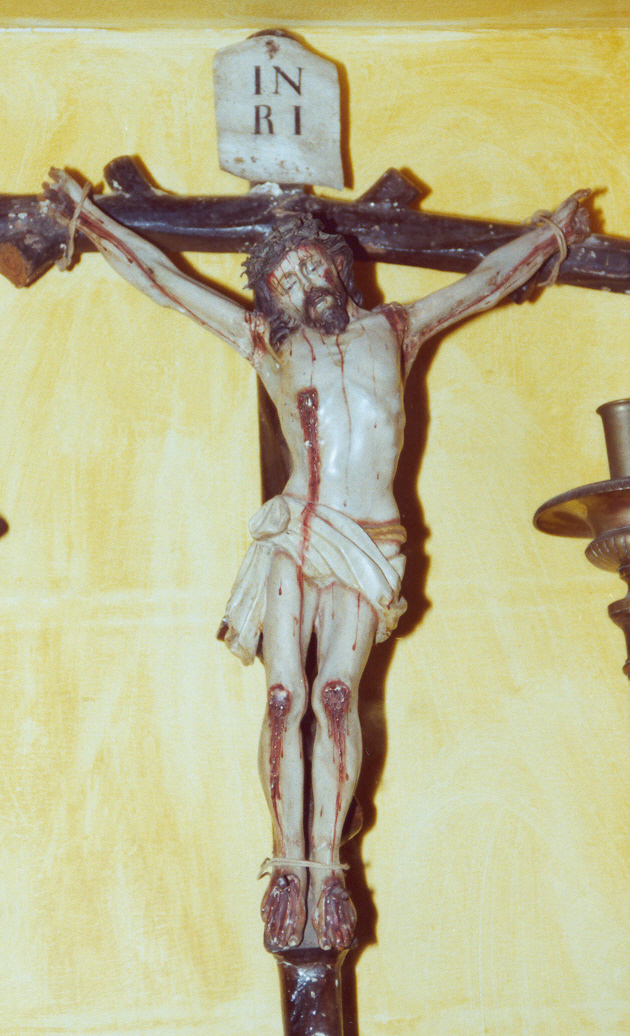
22nd Sunday in Ordinary
Time
A Homily - Cycle A - 2004-2005
First Reading - Jeremiah 20:7-9
Responsorial Psalm - Psalm 63:2, 3-4, 5-6, 8-9
Second Reading - Romans 12:1-2
Gospel - Matthew 16:21-27
Matthew wrote to show that Christ
was the
Messiah and fulfilled the Jewish prophecies.

From that time on, Jesus began to show his disciples that he must go to Jerusalem and suffer greatly from the elders, the chief priests, and the scribes, and be killed and on the third day be raised. Then Peter took him aside and began to rebuke him, "God forbid, Lord! No such thing shall ever happen to you." He turned and said to Peter, "Get behind me, Satan! You are an obstacle to me. You are thinking not as God does, but as human beings do." Then Jesus said to his disciples, "Whoever wishes to come after me must deny himself, take up his cross, and follow me. For whoever wishes to save his life will lose it, but whoever loses his life for my sake will find it. What profit would there be for one to gain the whole world and forfeit his life? Or what can one give in exchange for his life? For the Son of Man will come with his angels in his Father's glory, and then he will repay everyone according to his conduct."

What a difference a week makes! Last week, Jesus declares Peter as the first Pope of the Church and even calls Peter "blessed" for having received divine wisdom from the Father to confess that in fact, Jesus is the Son of God. Today, Jesus scolds Peter and says, "Get behind me, Satan!" What a dramatic change in Peter's status! Why this sudden change? Why this incredibly forceful reaction from Jesus?
When Peter pulled Jesus aside and began to contest that Jesus should ever have to suffer, Peter's line of thinking must have struck a chord within our Lord. It's as if Peter's remarks were an instant flashback to the temptation in the desert that Jesus endured for 40 days and 40 nights, while subjected to the temptations of Satan himself. And what was at the heart of Stan's temptations of Jesus? Something very simple: to abandon Christ's salvific mission of suffering and dying for our sins in order to save the world. So, when Peter's remonstrations of Jesus reached our Lord's ears, Christ's reaction is justifiably forceful. He never wanted to be tempted from the outside in His humanity as He once endured from Satan.
This dynamic between Jesus and Peter should cause us to become more vigilant in three areas of our spiritual lives:
1. We must guard against the temptation to view suffering as an absolute evil. Suffering, while it is the absence of a due good, such as health, or good weather or sanctified human relationships, has a redemptive value. To deny this fact is to render Christ's sacrifice as pointless. By His suffering, Christ teaches us the true meaning of suffering - the way of the Cross, which leads to Calvary, yes, but to the promise of Easter, eventually. Consider the heroic lives of Terri Schiavo or Susan Torres, two women whose suffering was thought by many to be pointless and even cruel. And yet, what did these two women teach us? The intrinsic value and worth of each human life (priceless and unrepeatable); the beauty of the human person who is able to overcome the temptation to despair in the face of suffering; the solidarity that exists among those who care for the sick as Christ would - loving them for who they are, not for what they can do and loving them to the end.
2. We must also guard against the tendency that we can have to be like Peter - obstacles for others. How often can our attitudes and words and actions dissuade others from seeking holiness and the fulfillment of their vocation? How often have I heard parents dissuade their adult children from having more children or dissuade a family member from pursuing a vocation to the religious life or priesthood? How often have I heard Catholics slander priests and caused others to lose respect for the teaching authority of the Church, offering no reason for others to convert to the Faith?
3. We must also avoid the temptation to fall into what is called the cult of body. We are most attuned to physical suffering, perhaps more immediately than spiritual suffering. And while we should take necessary steps to promote good health and preserve our bodies, there is a tendency to begin seeing the care of the body as a type of religion unto itself. There is a tendency to become over-concerned with our weight, or appearance, our image. The culture of health clubs, spas and similar facilities can turn otherwise sober and focused Catholics into neo-hedonists - seeking the next pleasurable experience. And while none of these things are themselves evils, they have the capacity to make us view any type of bodily suffering as something to be avoided at all costs. Even Catholics who fast and abstain from meat every Friday fall into this trap all too easily.
As we contemplate the great mystery that Christ entered into - his glorification through suffering and death, we do well to examine how well-disposed we are to embracing the Cross that He reminds us we must cling onto if we are to enter into the kingdom. The road to glory passes through the crucible - where the two beams of the Cross meet. Let us ask the Blessed Virgin Mary to accompany us through the sufferings of this life so as to delve more deeply into the mystery of their redemptive value.
Praised be Jesus Christ! Now and forever!
If you find this
material valuable, consider a tax deductible gift to support this site.
The DaCapo Foundation • 2402 Tricia Ct. • Vienna VA 22181